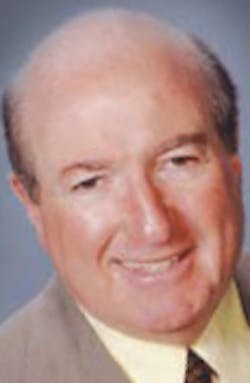Economic Challenges for the Next President
By Dr. Paul Freedenberg
Vice President-Government Relations, AMT—The Association For Manufacturing Technology
The next President, whether it is Barack Obama or John McCain, will be faced by daunting challenges. The world has changed rapidly over the past eight years, and the old solutions do not necessarily fit the new problems.
Despite reasonably robust economic growth averaging 3 percent during President Bush’s tenure —the strongest among the Western economies — there is now anemic economic growth, a housing crisis, and a credit crunch pointing to a looming recession on the horizon.
Thus, despite past success, John McCain wants to stay as far from association with President Bush’s economic policies as possible. With an almost $500 billion budget deficit predicted for 2009, the question of how to raise new revenues or radically cut spending will immediately confront any new leader.
If Obama is elected, one attractive target would be the Bush tax cuts, which — because of the arcane Congressional budget rules — are due to expire in 2010.
To continue, they must be legislated once again.
The top rates are almost certain to rise from 35 percent to 38 or 40 percent, which will affect not only individuals but many (S-Corp) small businesses. But, also included in the underlying Bush package of tax cuts is the estate tax.
Under that law, estate taxes would go to absolutely no Federal tax in 2010 and then — if left to expire — back to a 55 percent rate, with a $1 million exemption, the following year.
This would be a nightmare for estate planning, not to speak of suicide prevention hot lines. To avoid this roller coaster of taxes, the new president will have to send up at least a new estate tax plan in the first few months.
Food and commodity prices have risen dramatically over the past few years.
The price of a barrel of oil has risen twelve-fold since the early 1990s. Only six years ago, oil was $20 per barrel. But with record-setting global economic growth averaging 4.25 percent since that time, led by emerging market economies in China, India, and Brazil, we have seen a jump in demand of nine million barrels of oil a day in this decade.
Meanwhile, a consensus seems to have been achieved among the major industrialized powers that the emission of greenhouse gases into the atmosphere has to be reduced radically to avoid further adverse effects on the world’s climate.
Everyone seems to be in favor of shifting away from petroleum-based fuels, but the cost of the transition will inevitably add additional costs to producing energy.
There is no such thing as a free lunch, but no politician — certainly not the two presidential candidates — wants to tell the voters that they are likely to pay even more to heat and cool their homes and drive their automobiles.
Nonetheless, it will be impossible to duck this issue as well.
As I have discussed in previous columns, the American attitude toward trade has been undergoing a significant shift. Important constituencies within the electorate now question whether the trend toward ever expanding international trade and globalization is a good thing.
The recent breakdown of the Doha Round of trade liberalization is a good example of this problem. Despite the fact that Bill Clinton could run a campaign and win re-election in 1996 by endorsing free trade and pointing to his successful enactment of the North American Free Trade Agreement (“NAFTA”), no Democrat today would want to similarly highlight such a position on trade liberalization. Hillary Clinton and Barack Obama took quite the opposite position during the Democratic primaries.
Indeed, as Albert Einstein once said, “Everything in the world has changed, except our way of thinking about it.”
The next President, whether he is a Republican or a Democrat, will be forced to make decisions and create legislative support for a number of very unpleasant choices, including higher taxes or severe spending cuts, higher energy costs, and a changed perspective regarding how our nation interacts with the world.
We can only hope that he is equal to the tasks.
